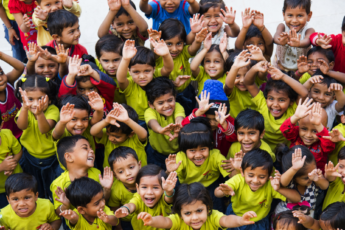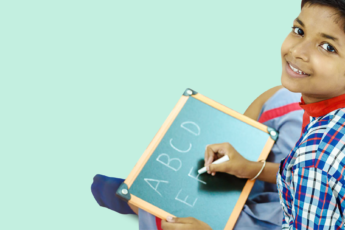The Importance of Skill Development in School
When we think about the school curriculum, our minds inevitably go to academics. We remember lessons from history and sciences and our teachers’ helpful advice about homework and career paths. But what about skills? Skills are the fundamentals that contribute to success in any career. They’re not only necessary for academic learning but also for any work done in the real world.
While we all agree that focusing on gaining academic prowess and knowledge is indispensable, it’s worth considering to what extent skill-building can be incorporated into a student’s day-to-day life. In an increasingly globalized economy, workers must adapt to new technology, cultures, and ideas yearly. Businesses need employees who can keep up with these changes even if they don’t have a background in engineering or computer science. Explore more about Skill Development in School as you read along to complete the read.
🖊️ Current Scenarios in India
Skill Development in School: The importance of skills development in school has been largely neglected in Indian education landscape. The current education system only evaluates students based on tests and academic records. These students are given ranks and medals but with no thought to what is expected of them in real-life situations. Unfortunately, this has created a population of people who have gained superb scores on tests but lack the abilities necessary for real life.
A survey found that more than a third of India’s educated youth are unemployed because most lack the skills needed for today’s jobs. This is extremely worrying because this demographic isn’t only losing out on a source of income and job security but is missing an opportunity to gain experience and learn about the workplace, which will make them more valuable to employers in the future.
The survey further reveals that India will need 2.7 million skilled professionals by 2023. This can be achieved with a skill development curriculum. It could provide opportunities to create practical skills in knowledge, abilities and applied understanding that would give students an edge when applying for jobs.
The NEP 2020 promotes holistic learning, wherein students are encouraged to study various subjects such as humanities, sports, fitness, languages, culture, and arts in addition to science, math and languages. The policy also enforces the importance of other skills, such as communication, teamwork and problem-solving. In line with this vision of holistic education, schools are now focusing more on skill development than before. For example, they encourage students to take up extracurricular activities like a debate club or drama club to learn how to communicate effectively with others and improve their public speaking skills.
🖊️ Benefits of Skill Building in School
If skills development is part of the school curriculum, students will be able to see the connection between their studies and real life applications. This will allow students to see how their studies are relevant and important, as well as provide them with a method of measuring their own performance and progress towards mastery.
🖊️ Promote Independent Thinking
The key to a stable, prosperous nation is cultivating a large population of thinkers and leaders who are confident and competent at solving problems independently. While a few people may excel academically, many either struggle to learn or grow bored with the traditional classroom experience, resulting in low self-esteem and the inability to think critically.
When students have multiple avenues to learn from, they become independent thinkers who can apply concepts in the real world. With a focus on independent thinking, students become better at analyzing problems from all sides, which is an essential skill for any future career involving working with others. Students who have a solid grasp of how to apply what they learn are also more likely to be successful in whatever career they choose—whether it’s computer programming or becoming a surgeon, knowing how to think about a problem and solve it independently will never go out of style.
🖊️ Enhances Creative Thinking
Creative thinking is a part of the cognitive process that goes beyond logical thought. It allows one to think beyond the usual way of doing things and look at things from various angles. Creative thinkers often exhibit some personality traits such as optimism, curiosity, flexibility, open-mindedness, originality, willingness to take risks and tolerance for ambiguity. Most of these personality traits are not taught but developed due to exposure to different situations. Therefore, creative thinkers need an opportunity to explore their strengths and weaknesses. This is what schools should provide them with by incorporating skill-based learning into their curriculum.
Actions such as dancing, singing and drawing can help promote well-being and happiness, allowing children to tune into their bodies. The fun element involved in doing these things activates the child’s five senses: sight, sound, taste, touch and smell. This leads to greater physical activity and improved cognitive functions.
🖊️ Teaches to Fail Gracefully
The way students are currently taught to succeed in school is not the same way they will be expected to succeed in the real world. In school, you are given all the information you need to get a good grade and complete an assignment. You have all the resources available, including teachers, textbooks, and other students who can help you when you are struggling. However, this is not how life works outside of school. When using your skills in the workplace, you won’t always have the resources you need to flourish. You need to know how to use what you have and make it work for you.
Students who have developed the ability to take risks in a safe environment and accept failure as part of the process will be better prepared for anything they encounter in the real world. In addition, students who develop skills through practice will be more likely to succeed when facing challenges with their own businesses and other ventures.
🖊️ The Bottom Line
Education is much more than just a way to pass down facts and figures from one generation to the next; it’s also about developing life skills. And although you might be inclined to think that the latter would be a better fit for extracurricular activities outside of school, education experts like those at Square Panda India believe that there’s no reason why both can’t exist side by side. We incorporate more skill-based learning methods into the curriculum to ensure that students are taught how to handle new situations in a way that allows them to thrive and succeed instead of just being told what they need to know.
This is why skill development should be a part of the curriculum we teach our children: because it helps them succeed in a world where change is inevitable and we don’t always know what’s coming next.




Leave a Comment